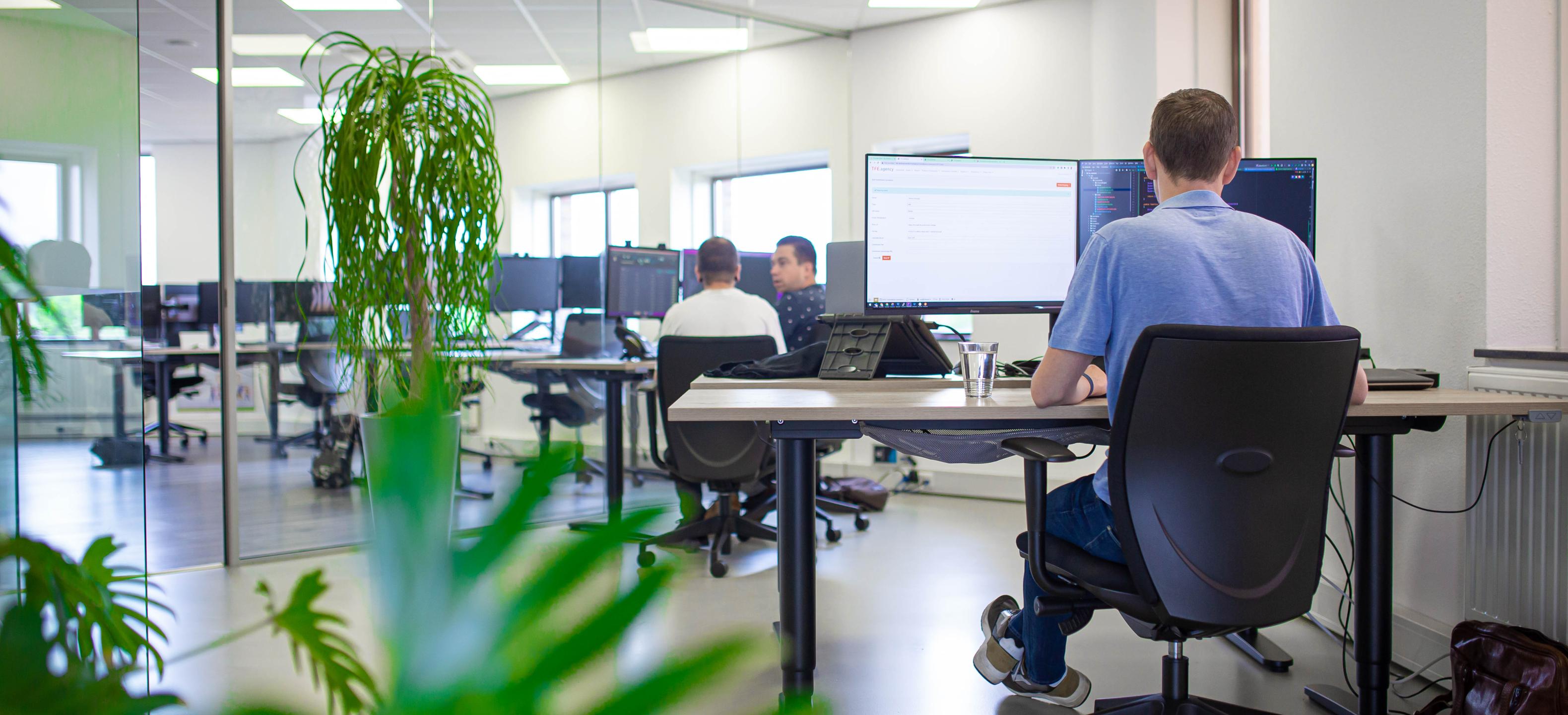Security program & software
Anti-virus / malware policy
Connected hardware is checked on a regular basis for anti-virus and malware. Anti-virus software is installed to ensure a safe as possible working environment for the team members.
Sensitive information
Customer data is stored on production servers and only available for employees that are given access. Back-ups are stored on restricted environments , depending on the platform.
Sensitive data will be stored encrypted upon request by the client.
Documentation and data provided by the client will be stored on Google Drive or Google Mail. Our Google accounts are protected with 2- Factor.
Clients can request data to be deleted. Sensitive information on paper will be destroyed by shredding the information.
Data access
Only employees working on the product will have access to production environments. Data access is revoked upon termination.

Technology
Used technology
Different technologies are used, but most are based on PHP and MySQL, for example:
- Laravel; see below
- Drupal; see https://www.drupal.org
- Magento; see https://developer.adobe.com/commerce/php/architecture/basics/security/
Security updates will be applied when a security contract is agreed upon with the Client. Otherwise update can be requested or can be done on hourly-based contracts.
Hosting provider
Different hosting options are available, with different techniques and security. The most common are:
- Flexwebhosting : Shared hosting, password-based restriction
- Digital Ocean/AWS/Linode/Hetzner VPS hosting with Laravel Forge: SSH key access
- Custom: Dependent on the hosting provider
Laravel Forge, Digital Ocean, AWS, Linode and our FXW dashboards are protected with 2-factor. Only required employees are given SSH access using SSH keys to the servers.
For Laravel projects, a local development server (either a server located inside the office, or a server running on a Fruitcake issued computer) will be used. This will prevent unauthorized access or data loss from any possible break-in. Sensitive data will only be available in the online test- and production environment, never on the (local) development environment.
Security components for Laravel projects
Secure communication: HTTPS
We will request a SSL certificate to provide a secure connection between the server and the client.
SSH Access: Private keys
SSH connections to the production servers will be available through private keys, secured with a passphrase. The private keys will be given out only to a limited group of developers who really need it.
Password hashing: Bcrypt with unique salt
All user passwords will be hashed one-way, with an unique salt per password. These passwords cannot be reversed and because of the salt, rainbow tables are useless. The passwords will never be stored in plain-text.
Encryption of sensitive data: AES Encryption
If needed, sensitive data can be encrypted using AES encryption, with an encryption key. This key is generated on the production server and stored on file, outside the webfoot and outside of version management.
SQL Injection: Parameterized queries
To prevent SQL injection, an ORM (Eloquent) is used, which only uses parameterised queries. This way, it is never possible to inject malicious user-supplied input into queries.
XSS Protection: Safe output by default
To prevent XSS, a secure tempting engine (Twig or Blade) is used. Variable escaping is turned on by default, so only when it is explicitly required and output is trusted, it will have raw output.
CSRF Protection: On by default
A CSRF token is generated on every session and required on all POST/PUT/DELETE requests by default. This will require that every form uses the CSRF token. This way, cross site requests are not possible.
Authentication and Authorization
Authentication is built-in in Laravel, which uses secure practices as described above (secure cookies, hashed passwords etc). It also provides mechanisms to protect routes based on the login status and can be used to verify certain roles for certain areas.
Validation
Laravel includes a validation component, to securely validate the user input, for example required files, expected types (images/numbers/emails) or unique/existing rows.
Configuration variables
Sensitive configuration is saved in a ‘.env’ file, which is not stored in the GIT repository and not in the webroot, but only accessible on the production server. This will be used to store database passwords, encryption keys and key/secrets for services like AWS.
GIT versioning and backups
The application source will be stored in a git repository. This repository will not contain any sensitive information and/or database passwords.

